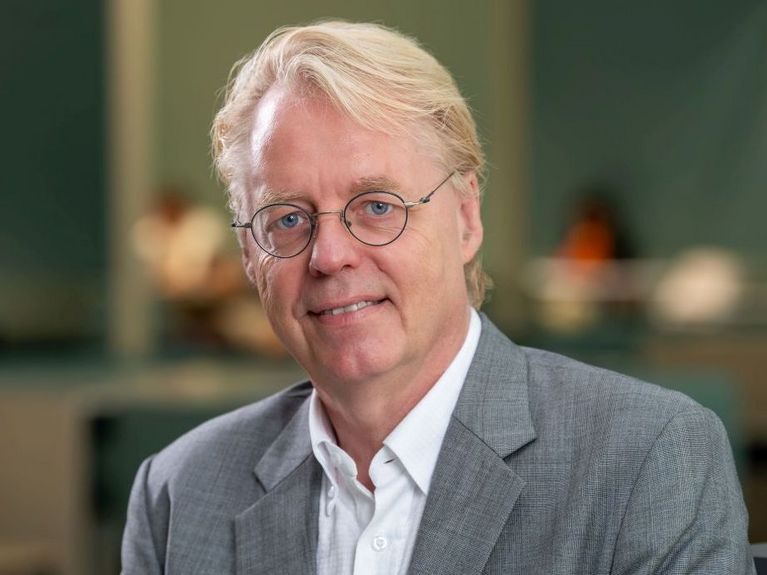Viewpoint
“Science without borders – and that’s still a good thing”

Jan S. Hesthaven has been President of Karlsruhe Institute of Technology (KIT) since October 2024. The Danish-born professor has held previous positions at the Technical University of Denmark (DTU) in Copenhagen and Brown University in the United States. Most recently, he served as Provost and Vice President at the École Polytechnique Fédérale de Lausanne (EPFL) in Switzerland. Photo: Markus Breig, KIT
Calls for stronger national borders are growing louder and louder. Yet in times of geopolitical tensions, it’s more important than ever to uphold the idea of international science – and to use it as a bridge between nations. A viewpoint by Jan S. Hesthaven.
The free exchange of ideas and the cross-border meeting of minds are the lifeblood of science. When political ideologies begin to obstruct these exchanges, more is at stake than just individual research projects. In the United States – until recently a global beacon of scientific openness – we are seeing increasing restrictions: Climate research, gender studies, and public health have become politicized, budgets are being slashed, and international collaboration is being questioned. Science is being exploited – or even attacked.
But scientific freedom is more than a value; it is essential. Especially in times of global uncertainty. Cross-border collaboration is key to scientific excellence and to the resilience of societies worldwide. Just consider the challenges of our time, from climate change to pandemic preparedness. Even during the Cold War – a low point in political dialogue – scientific exchange remained largely possible between nations. Continuing this tradition is not at odds with institutional neutrality; on the contrary, it reflects a deeply held conviction: that science must remain open, even – and especially – when political relations are strained.
This openness must be matched with strategy. Karlsruhe Institute of Technology (KIT) has sent a clear signal in this regard. By appointing a Danish president with academic roots in Switzerland and the United States, KIT has deliberately chosen an international outlook. I am honored by this trust – which also speaks to the institution’s remarkable openness.
But that openness is also a challenge for us. We’re on the right path, but we’re not there yet. As a student in Denmark, I saw for myself how crucial international networks are for scientific progress, especially in smaller countries. That lesson has stayed with me. True international excellence requires more than partnerships – it requires an environment that welcomes talents from around the world and helps them thrive.
We also need to prepare our students and staff to operate in global contexts. Bilingualism is an important step in that direction. English is gaining in importance – but German remains essential to who we are. With more than 200 years of history in Karlsruhe and the Baden region, KIT’s regional roots are a core part of our identity. Internationalism and regionalism are not opposites – they enrich each other.
KIT sees itself as an active player in an international network – within Europe and beyond. The Helmholtz Association strongly supports us in this mission. But we must also take action ourselves: by opening up career paths, creating reliable institutional frameworks, and enhancing our international visibility.
Germany needs to pursue internationalization – not just as a principle, but as a practical necessity. Like many European countries, Germany faces demographic decline. For KIT, with its strong ties to industry, this means that internationalization is not an option – it is a prerequisite for securing the future of education and innovation.
Internationalization is also a form of lived diversity. It brings fresh perspectives, fosters innovation, and connects people across the borders created by culture, language and nations. It’s not only a scientific asset; it’s an economic and societal imperative. Now more than ever.
Science can rebuild the bridges politics tears down. Amid geopolitical tensions, scientific collaboration creates a space for dialogue and mutual understanding. If we embrace internationalization not only as a strategy but as a mindset, science can become more than a tool for knowledge – it can become a vehicle for hope.
Readers comments